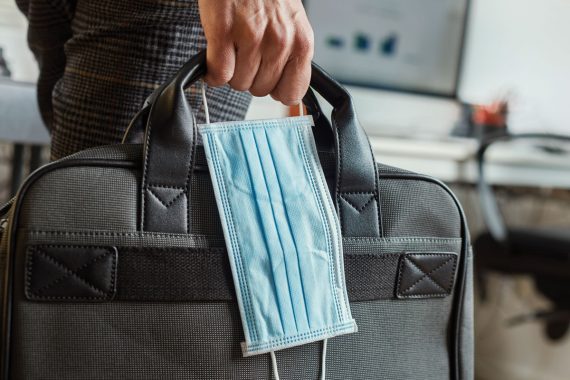The BMA and RCGP have said that ‘most’ GP practices in the UK should pause all or a ‘significant’ proportion of their non-essential work.
However, practices ‘must not undermine the message’ that general practice is open, they said.
It comes as NHS England last week set out a range of measures in a bid to address GP workload in the coming months.
Joint guidance on practice workload prioritisation, updated yesterday, said that the BMA and RCGP believe it ‘appropriate that most practices across the UK’ operate at the top two levels of a six-point response scale from 11 January.
Under level five – the scale’s highest – practices should stop ‘all non-essential work’ so they can ‘cope with very significant, potentially overwhelming demand relating to Covid-19, acute deterioration in long-term conditions, new symptoms indicating potentially serious disease and the Covid-19 vaccination rollout’.
This should be applied as an ‘emergency response’ where prevalence of infection is ‘very high’, the guidance said.
And practices operating at level four – in areas where Covid prevalence is ‘high or rising rapidly’ – should stop a ‘significant volume’ of non-essential work.
The guidance added: ‘Local prevalence of Covid-19 and staffing factors will determine the amount of non-essential work that can continue. This de-prioritisation of services should be decided in conjunction with local commissioners and system partners.’
However, in all cases practices should maintain ‘public messaging’ and ‘confidence’ that general practice is open – communicating a ‘very restricted service’ at level five and ‘most non-clinical services and significant volume of routine non-urgent clinical services’ unavailable at level four.
The guidance said: ‘Whatever steps we take to manage workload, we must not undermine the message that general practice remains open and that patients will be seen face to face where it is clinically appropriate.
‘We must continue to encourage patients with potentially serious symptoms to contact their surgery to enable an assessment.’
The BMA and RCGP added that pressures ‘are not uniformly felt’ across the UK and that the guidance ‘is not a substitute for clinical judgement’.
They said: ‘There is an important balance to be achieved locally between addressing the needs of patients with Covid-19, patients with non-Covid-19 health issues, managing workload pushed onto general practice from elsewhere in the system, as well as rolling out the Covid-19 vaccination programme.
‘We also know that decisions not to seek care for long-term conditions or newly developed potentially serious symptoms can place patients at a level of risk which, for some, is as significant or higher than the risk from Covid-19.’
GPs must be ‘given permission to provide care that best serves the needs of their patient population, in a way that adds most clinical value’ and keeps staff and patients safe from Covid, the guidance added.
The general practice workforce has been ‘physically and psychologically drained’ during the last year and is currently facing ‘significant pressures’, it said.
Last week, the BMA’s latest GP survey revealed that the pandemic is taking a heavy toll on the mental health of GPs.
And NHS England announced the suspension of local enhanced services and QOF income protection to help GPs manage their workload as they roll out delivery of the Covid vaccine.
GPs in London have already been asked to ‘stand down’ routine work over a two-week period and ‘focus on urgent care’, including support for care homes.
Read in full: BMA and RCGP workload prioritisation guidance


















READERS' COMMENTS [5]
Please note, only GPs are permitted to add comments to articles
What on earth do they think we spend our days doing? Social calls? If they hadn’t dumped the world and it’s aunt at the doorstep of general practice, maybe we could stop ‘non-essential‘ work. If 111 comes to us, outpatient work comes to us, mental health comes to us, what are we to do. Every call line ends at the GP- and they are surprised that we are drowning. Wake up and smell the s***storm you have created, you fools.
I think the article and thinking is wrong. GPs don’t do routine work. *It is the Public and “Patient” and “GOVUK” that avalanche routine, trivial, nanny work that keeps the NHS tariffs “in business”. Most other countries will laugh that you do an anxiety interim review, discuss IBS and one day of constipation, receive complaints and have to explain knee pain and back pain to a lockdown runner and a WFH. While +1000 die a day. You created the routine, not us. It is comedy.
This is currently farcical
We are/should be in a lockdown in many ways worse than March through July where all QOF ES Local quality contracts were suspended and payments made with no expectations on practices
Yet now its different
RCGP GPC refer to response levels and prioritisation and NHSE talks about income protection and most of my colleagues don’t believe them
NHSE is yet to endorse RCGP and GPC position
is QI QOF suspended ie all work stops? There are differing views
As most of us are in level 5 or 4 and unlikely to come out of it until end of March why isn’t QOF and ES LQC income just guaranteed no ifs ands or buts
madness
GO TO YOUR GP BUT DON’T GO ——IT’S CALLED MIXED MESSAGING
What the #### is non-essential in our workload?
Oh yes I remember, CQC, APPRAISAL, REVALIDATION, ‘mandatory’ on line training and all the utter #### the hospital consultants dump from their workload on us because they can’t be arsed to do it themselves-yup I am more than happy to stop all that!!